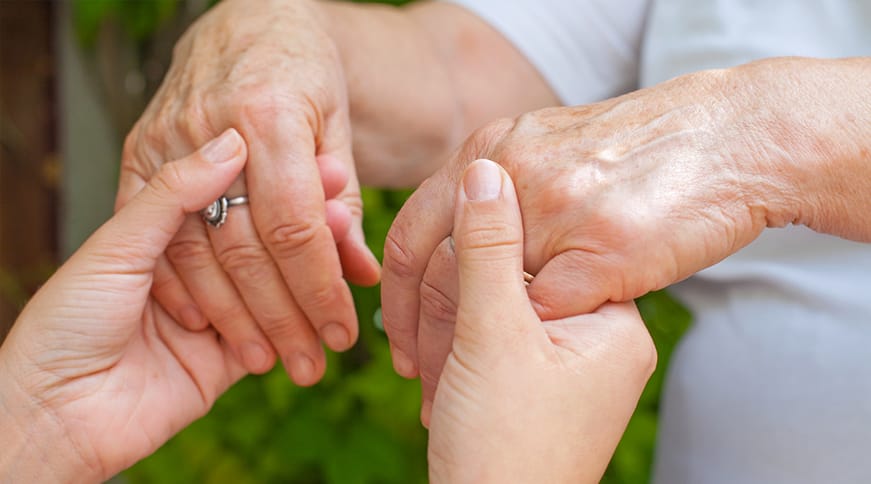Ayurveda’s Natural Approach to Neurological Wellness: A Gentle Path to Support Parkinson’s Care
Ayurveda’s Natural Approach to Neurological Wellness: A Gentle Path to Support Parkinson’s Care

As the season shifts and we reflect on the journeys of healing around us, we take a moment to honor those living with Parkinson’s disease—a condition that affects not only the body, but also the mind and spirit. This neurological challenge calls for compassion, understanding, and a deeply holistic approach to care. At ASHAexperience, we believe that Ayurveda, the ancient science of life, offers profound support on this journey. Through natural, personalized therapies that restore balance and vitality, Ayurveda invites us to embrace healing not as a destination, but as a continuous, nurturing path toward well-being.
Parkinson’s Disease Through the Ayurvedic Lens
In Ayurveda, health is viewed through the lens of balance—balance between the body’s three doshas, the five elements, and the mind and spirit. Parkinson’s disease, with its hallmark symptoms of tremors, rigidity, and bradykinesia (slowness of movement), is seen primarily as an imbalance in the Vata dosha. Vata governs movement, communication, and the nervous system, and when it is disturbed, it can lead to the kinds of motor dysfunctions associated with Parkinson’s.
However, Ayurveda also considers the holistic nature of disease, recognizing that imbalances may also arise from an underlying imbalance in the other doshas—Pitta and Kapha—affecting the mind, digestion, and overall vitality. By identifying the root causes of the disease in each individual, Ayurveda provides a personalized approach to healing that aims to restore harmony to the body and mind, offering profound and sustainable support for those living with Parkinson’s.
Ayurveda’s Natural Therapies for Parkinson’s
Ayurveda offers a wide array of natural therapies that are tailored to restore balance in the body and mind, especially when dealing with neurological health challenges such as Parkinson’s. Here are some of the ways Ayurveda supports individuals affected by Parkinson’s disease:
- Herbal Remedies for Neurological Health: Certain herbs are especially effective in calming Vata and supporting brain health. Brahmi is renowned for its ability to improve cognitive function, enhance memory, and calm the nervous system, while Ashwagandha is an adaptogen that helps combat stress and improve physical strength and vitality. These herbs can significantly reduce the tremors and muscle stiffness that are often experienced by those living with Parkinson’s.
- Mind-Body Healing: Ayurveda encourages practices that promote a strong connection between the mind and body. Through techniques like pranayama (breathing exercises), meditation, and yoga, the nervous system is calmed, and mental clarity is enhanced. These practices help manage the emotional strain of Parkinson’s disease, promoting relaxation and emotional resilience.
- Ayurvedic Diet for Neurological Wellness: Nutrition plays a vital role in maintaining balance within the body. In Ayurveda, food is considered medicine, and a diet rich in antioxidant-rich vegetables, healthy fats, and calming herbs can support the nervous system and promote overall neurological wellness. Foods like turmeric, ghee, and sesame oil are often recommended for their anti-inflammatory properties, while a balanced diet supports digestion and provides the body with the energy needed to fight the disease.
- Natural Support for Tremors and Rigidity: Parkinson’s disease is often associated with tremors and muscle stiffness. Ayurvedic treatments such as Shankhpushpi (a powerful herb for the nervous system) and Guduchi (which supports the immune system) are commonly used to calm tremors and support the body’s ability to restore movement. Massages with warm herbal oils can also relax the muscles, reducing rigidity and improving mobility.
- Ayurvedic Detoxification: Panchakarma, an ancient Ayurvedic detoxification process, can be used to cleanse the body of accumulated toxins and restore balance to the doshas. Through techniques such as oil massages, steam therapy, and therapeutic enemas, Panchakarma helps to promote circulation, reduce stress, and reestablish the natural flow of energy within the body.
A Holistic Approach to Managing Parkinson’s
The uniqueness of Ayurveda lies in its holistic nature, addressing the root causes of neurological issues and offering a multifaceted approach to healing. For those living with Parkinson’s, this approach allows for more than just managing symptoms—it focuses on rejuvenating the entire being, improving quality of life, and fostering a sense of calm, peace, and empowerment.
Parkinson’s disease is not just a physical condition; it has emotional, mental, and spiritual dimensions. Ayurveda recognizes this interconnectedness and offers a healing system that nurtures every part of the person. By cultivating a sense of balance and vitality, Ayurveda empowers individuals to manage Parkinson’s in a way that supports their journey of healing and resilience.
Why Ayurveda Matters for Parkinson’s Wellness?
Many people with Parkinson’s, as well as their caregivers, often find themselves seeking alternatives to traditional treatments in their pursuit of a more balanced, peaceful life. Ayurveda offers a safe and effective complement to modern medicine, focusing on the individual’s unique constitution and addressing the symptoms in a way that modern treatments may not. It is a deeply compassionate approach, one that emphasizes healing and holistic wellness instead of simply symptom management.
For caregivers, Ayurveda’s teachings also emphasize the importance of self-care. Caregiving is a demanding, often exhausting role, and it is easy for caregivers to neglect their own well-being. Ayurveda’s gentle practices for stress relief, emotional healing, and physical rejuvenation help caregivers restore their own energy, allowing them to give more effectively to their loved ones.
Empowering Through Knowledge and Compassion
On this World Parkinson’s Day, we invite you to consider the full potential of Ayurveda as a means of supporting neurological health. Whether you are living with Parkinson’s, caring for a loved one, or simply seeking knowledge on how to approach this condition holistically, Ayurveda offers a path to healing and transformation. It is not just about treating a disease—it’s about embracing life with intention, vitality, and purpose.
Discover Your Path to Wellness with ASHAexperience
At ASHAexperience, we offer a range of Ayurvedic wellness programs designed to support those living with Parkinson’s, as well as their caregivers. Whether online or at our serene retreats in India and Germany, our Ayurvedic experts will guide you through personalized therapies that restore balance, soothe the nervous system, and help rejuvenate the body and mind.
We are here to support your journey toward holistic healing. Let us help you discover the natural, restorative power of Ayurveda—your path to neurological wellness. Reach out today to learn more and begin your journey toward healing, balance, and hope.
We believe in collaborative relationship-based care where our Ayurvedic Doctors, Ayurvedic Practitioner, Ayurvedic Supplement Brands, Ayurvedic Nutritionists & Chefs, Yoga, and Meditation Trainers are in sync. Contact the team who passionately works together to hold your hand in this healing journey.

